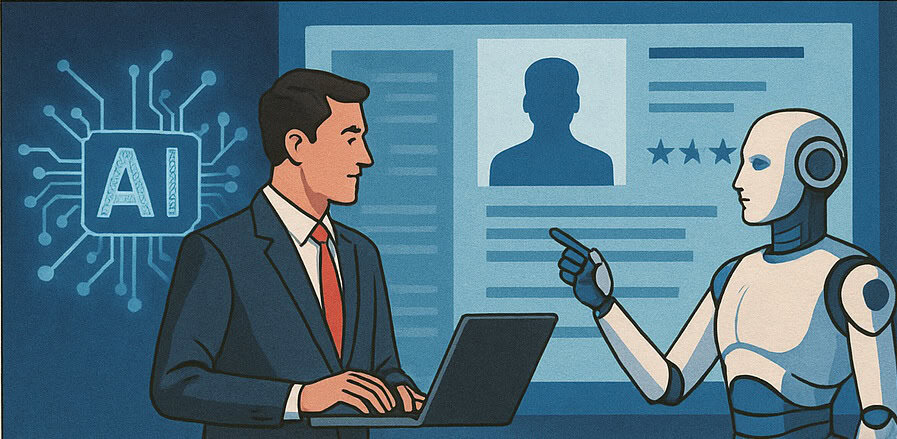
The recruiting industry is undergoing one of the most significant transformations in its history, propelled by rapid advances in artificial intelligence. What began as simple résumé-scanning tools has evolved into sophisticated systems capable of sourcing talent, predicting job performance, screening candidates at scale, and personalizing the hiring experience in ways once thought impossible.
From Manual Searches to Intelligent Talent Matching
For decades, recruiters relied on manual keyword searches and time-consuming outreach to identify qualified candidates. Today, AI-driven platforms can scan millions of profiles in seconds, automatically matching job requirements to candidate skills and experiences. These systems can even infer capabilities not explicitly listed on a résumé, such as problem-solving or leadership traits, by analyzing writing style, portfolio data, or past project patterns.
Companies report that AI sourcing tools are cutting the time required to build a candidate pipeline by more than half. Recruiters are increasingly shifting from administrative tasks to strategic work—such as relationship building and employer branding.
Smarter Screening and Interviewing
AI-powered screening tools now evaluate applicants using predictive analytics, assessing factors like career trajectory, skill relevance, and likelihood of success in a given role. Some organizations are adopting AI-driven video interview platforms that analyze speech patterns and question responses to identify competencies and cultural alignment.
While these systems promise improved consistency and reduced bias, they also raise questions about fairness and transparency. Regulators in several regions—including the U.S. and EU—are beginning to scrutinize how AI models evaluate candidates, prompting companies to conduct audits and implement ethical AI frameworks.
AI as a Co-Pilot for Recruiters and Candidates
Generative AI is emerging as a “co-pilot” for both sides of the hiring process. Recruiters are using AI assistants to write job descriptions, craft personalized outreach messages, and summarize candidate profiles instantly. Candidates, meanwhile, are using AI to prepare for interviews, refine résumés, and better understand job expectations.
This dynamic is creating a new equilibrium in the talent market: both recruiters and applicants now have access to powerful tools that help level the playing field.
Challenges and Concerns Remain
Despite its benefits, AI’s growing influence in recruiting is not without controversy. Critics warn about algorithmic bias, lack of transparency in automated decision-making, and the potential for over-reliance on systems that may unintentionally filter out qualified—but unconventional—candidates. Employers are being urged to maintain human oversight and conduct regular audits to ensure fairness.
Privacy concerns are also rising as AI tools analyze broader sets of data—from public social posts to psychometric indicators—raising questions about where the line should be drawn in evaluating talent.
The Future of Hiring
Industry experts predict that AI will continue to reshape recruiting, with future systems acting as fully collaborative partners—suggesting compensation packages, forecasting workforce needs, and improving internal mobility by matching employees to roles before they even apply.
But one thing remains clear: AI isn’t replacing recruiters. It’s redefining their role. As administrative burdens shrink, the human aspects of hiring—judgment, empathy, relationship-building—are becoming more essential than ever.
Recruiting is entering a new era, and organizations that embrace AI thoughtfully and ethically are likely to lead the competition for talent in the years ahead.